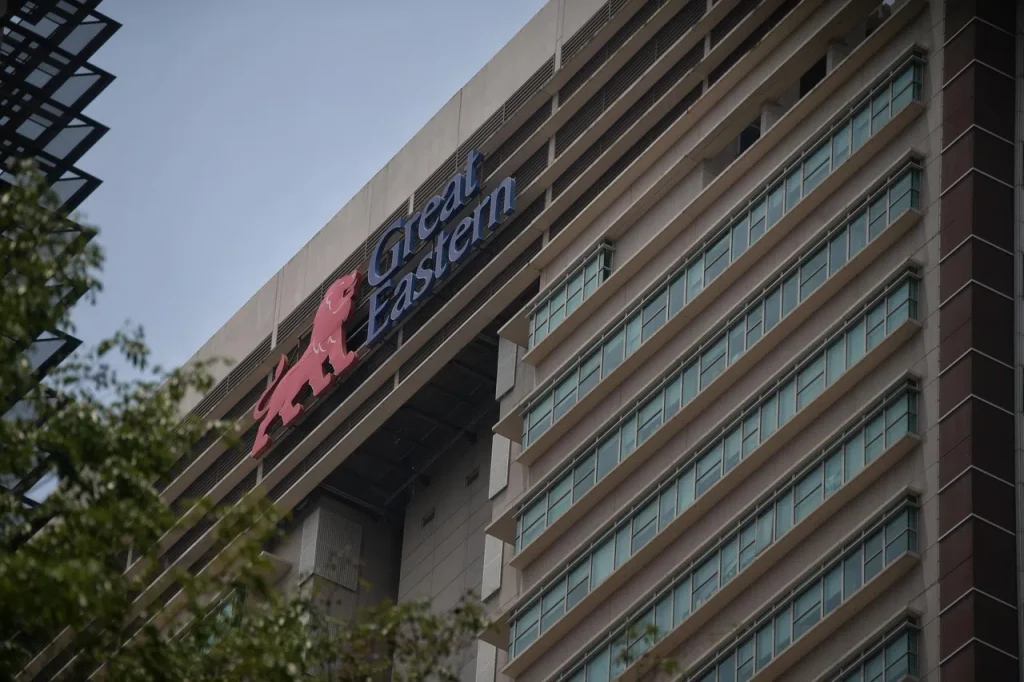[SINGAPORE] As OCBC makes a conditional exit offer of S$900 million at S$30.15 per share to Great Eastern Holdings’ (GEH’s) shareholders, The Business Times takes a look at the background to the deal.
What happened last year?
Last May, OCBC made a voluntary unconditional general offer of S$25.60 per share or S$1.4 billion for the remaining 11.56 per cent stake in GEH that it did not already own, with the aim of delisting the insurer.
When the offer closed in July 2024, the bank held 93.52 per cent of the insurer, leaving 6.48 per cent in the hands of minorities. This fell short of the shareholding it needed – 96.94 per cent (excluding concert parties) – to delist GEH, or to compulsorily acquire the rest of the shares.
Trading in GEH shares was thereafter suspended on Jul 15, 2024 after the insurer’s free float fell below 10 per cent. GEH has been granted three extensions of time to comply with the free float requirements under the Singapore Exchange’s (SGX) listing rules.
Exit offer of S$30.15 per share
BT in your inbox

Start and end each day with the latest news stories and analyses delivered straight to your inbox.
To meet listing requirements, OCBC announced on Jun 6 that it is making a conditional exit offer of S$900 million at S$30.15 per share to support GEH’s delisting proposal.
What is a conditional exit offer?
A conditional exit offer is a proposal made to shareholders – usually in the context of a voluntary delisting or corporate restructuring – to sell their shares only if certain conditions are met.
To succeed, at least 75 per cent of the total number of issued shares held by GEH shareholders voting in person or by proxy, in favour of the delisting resolution at an extraordinary general meeting to be convened soon.
OCBC will not be able to vote.
There are two large shareholder blocks within the remaining 6.28 per cent of GEH that the bank does not own. The Wong family and the Lee family hold close to 3 per cent of GEH. This represents about 48 per cent of the remaining stake. Given the 75 per cent approval threshold, this means that if both parties do not support the delisting, there is no way that the delisting vote can succeed. The OCBC exit offer will then lapse.
However, if only the Lee family, given their affiliation with the founding father of OCBC, supports the delisting but the Wongs do not, it will depend on how many of the other minorities turn up.
In its announcement on Jun 6, OCBC stated that its exit offer price of S$30.15 – which has been assessed to be fair and reasonable by EY, the independent financial adviser (IFA) – is final.
It implies an FY24 price to embedded value ratio (P/EV), price to net asset value ratio (P/NAV) and price earnings ratio (P/E) of 0.8 times, 1.6 times, and 14.3 times respectively. These implied FY24 P/EV, P/NAV and P/E ratios of the exit offer price also represent a premium compared to the median FY24 P/EV, P/NAV and P/E ratios of comparable companies outlined in the previous IFA letter.
What happens if the delisting resolution fails?
GEH shareholders will then proceed to vote on a resolution to satisfy the free float requirement. This requirement states that the public must hold at least 10 per cent for the company to remain listed.
The one-for-one bonus issue resolution comprises new ordinary shares (bonus shares), which will be listed and carry voting rights, and newly created Class C non-voting shares which will not be listed and have no voting rights. Class C non-voting shares are meant for OCBC to keep its 93.72 per cent economic benefit from GE while increasing the number of GEH voting shares to more than 10 per cent to restore the free float. GEH shares will then be able to resume trading.
Both classes of shares will be issued at no cost to shareholders, and will be entitled to the same dividends. All GEH shareholders will receive the bonus shares unless they elect to receive the Class C non-voting shares.
OCBC intends to vote in favour of this resolution, and at the request of GEH, OCBC will opt to receive Class C non-voting shares.
By doing so, OCBC’s own shareholding of voting shares in GEH will fall from 93.72 per cent to 88.19 per cent. This way, GEH restores its free float, and trading of its shares resumes.
OCBC said that it has no intention of launching another general offer in the foreseeable future if GE resumes trading. The last offer, prior to the one made in 2024, was 20 years ago.
The result assumes that GEH minority shareholders, who hold the remaining 6.28 per cent stake, do not opt for the Class C non-voting shares.
If some minority shareholders opt for the Class C non-voting shares, it is possible that the total number of ordinary voting shares (including OCBC’s 88.19 per cent) stays above 90 per cent and the shares will not be able to restore its free float and have to stay suspended. GEH minority shareholders will then go back to square one.
What happens if GEH resumes trading?
The liquidity and trading volume of GEH shares are unlikely to improve, given the more concentrated shareholding structure of the insurer now. The current macroeconomic uncertainties and market volatility also make it unlikely that the share price can rise much.
The Class C non-voting shares will help OCBC retain its rights to 93.72 per cent of the economic interests in GEH (including the rights to 93.72 per cent of dividends to be paid).
Conclusion
Minority shareholders have to carefully weigh their next step. However, the outcome is in the hands of the Wong and Lee families who hold the bulk of the shares and can therefore affect the result.


